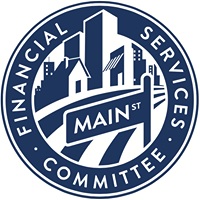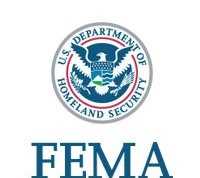WASHINGTON (September 25, 2017) – (RealEstateRama) — The House voted 264-155 today for legislation that includes a bipartisan effort to encourage the creation of private flood insurance markets in an effort to provide homeowners with more coverage options at more affordable rates.

The bipartisan Flood Insurance Market Parity and Modernization Act, sponsored by Reps. Dennis Ross (R-FL) and Kathy Castor (D-FL), would correct a longstanding problem in how homeowners are insured against flood damage. Currently, the vast majority of flood insurance policies are provided through the government’s National Flood Insurance Program (NFIP), leaving consumers with little to no choice in coverage options.
The bipartisan Ross-Castor bill repeals government roadblocks to lower flood insurance rates by clarifying how non-government flood insurance policies can satisfy the federal flood insurance mandate for properties that are located in high-risk areas.
The Flood Insurance Market Parity and Modernization Act passed the House last year by a vote of 419-0. The Financial Services Committee approved the bill this year by a vote of 58-0.
“The recent major flood events across the country have provided a much-needed sense of urgency to our efforts to provide consumers with private sector flood insurance options. Currently, many homeowners in Florida and across the country face unaffordable flood insurance premiums and a lack of coverage options, largely due to federal regulatory barriers that give the National Flood Insurance Program a harmful monopoly over the marketplace,” said Rep. Ross. “The legislation passed today will greatly benefit consumers in flood prone areas because it will remove these unnecessary barriers and allow more private flood insurers to enter the market, leading to increased competition and more affordable, comprehensive policies. As with other forms of insurance, the private sector, in conjunction with state insurance commissioners, can provide the innovation and flexibility that will help homeowners better manage and understand their risk, while also reducing the number of uninsured homes and incentivizing investments in flood mitigation and resiliency efforts. It would be irresponsible to delay passage of this bipartisan reform any longer. If our Senate colleagues are serious about improving the flood protections available to homeowners and reducing the suffering caused by major floods, then they must act quickly to pass this legislation.”
During debate on the House floor, Rep. Jeb Hensarling (R-TX), the Chairman of the Financial Services Committee and a long-time supporter of reforming the National Flood Insurance Program, delivered the following statement:
“Mr. Speaker, we have all seen the terrible tragedy and suffering from Harvey, Irma, and Maria. We have seen the shattered homes, and we have seen the shattered lives. I have been to Houston and my native Texas to visit with a number of the victims.
“There are many tragedies, Mr. Speaker, out of these hurricanes and flooding, but one of the tragedies–one of the tragedies–is that in Harris County, where Houston is, 80 percent of the homes that were flooded didn’t have flood insurance.
“Now, why didn’t they have flood insurance, Mr. Speaker?
“I believe one of the reasons is because we have a government monopoly called the National Flood Insurance Program. Many people don’t even know of its existence. Many people think they were safe because they were 3 feet outside of the government designated 100-year floodplain. Many thought that somehow this was simply rolled into their homeowners’ insurance policy, but it wasn’t.
“So, Mr. Speaker, we have an opportunity to make sure that people have more affordable options for flood insurance.
“Wouldn’t it be wonderful that for every time you saw a life insurance commercial or an auto insurance commercial, you saw something about flood insurance to help educate the American people about the need for this basic insurance policy?
“We could see the savings occur as people rolled this into their homeowners’ policy.
“In the very small portion of the market, Mr. Speaker, where there is competition, people are saving not just hundreds of dollars, but thousands of dollars.
“We have heard from the Megoulas family in Pennsylvania: ‘NFIP insurance would have cost me $2,700 a year, but I was able to find private coverage for only $718.’
“We heard from the Cyr family, also of Pennsylvania: ‘I have benefited from switching to private market flood insurance from FEMA. I save about $1,000 per year.’
“So, Mr. Speaker, there is a piece of legislation known as the Flood Insurance Market Parity and Modernization Act, also known as Ross-Castor. I want to thank my colleague from Florida (Mr. Ross) for his leadership on this issue. It is very simple. It simply clarifies congressional intent that people ought to have more options.
“In particular, Mr. Speaker, as people begin to rebuild after these hurricanes, they need better options for flood insurance, particularly with the NFIP $30 billion in debt, facing another bailout, and facing an uncertain future. Now we need to take care of that.
“That is why I have proposed, along with Chairman Duffy, a 5-year, long-term reauthorization. We are currently operating under a temporary 90-day authorization. But as we do, let’s work on something that we can all agree on. The last time this bill came up in the House, Mr. Speaker, 419-0. It has recently come out of the Financial Services Committee 58-0.
“I am not sure you can get that kind of vote tally for a Mother’s Day resolution. It is bipartisan. It is the very definition of bipartisan.
“So let’s take one important step today to help the victims of Harvey, Irma, and Maria as they begin to rebuild their homes, to have more flood insurance options, more affordable insurance options. As we work through what we might disagree on in the NFIP authorization, let’s pass today what we can agree on and help the victims today.”




